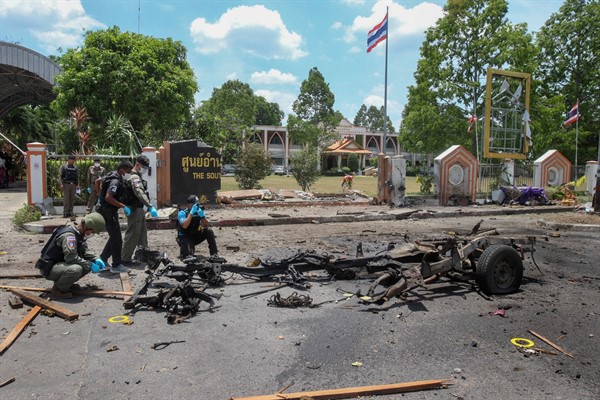In early March, Thai government negotiators convened in Kuala Lumpur for a second round of direct talks with the Barisan Revolusi Nasional, or BRN, a secretive separatist group that is thought to control the vast majority of rebels operating in Thailand’s restive “deep south.” Until an earlier round of talks in January, the BRN had been excluded from dialogue with the government in Bangkok, which was controlled from 2014 until last summer by a military junta. Now, a nominally democratic government led by Prime Minister Prayuth Chan-ocha, the former army chief, is cautiously reviving a long-stalled peace process.
The Thai government labeled the latest meeting as “constructive,” yet stressed further substantive talks with the BRN would require “time, continuity and support” from all stakeholders in the peace process, which is being mediated by neighboring Malaysia. Thai negotiators also emphasized the need for a “reduction of violence in order to create a conducive atmosphere” for talks, which in the past have routinely faltered amid resurgent separatist attacks and alleged abuses by the Thai military.
A deadly reminder of the fragility of the process came just three days after the talks in Kuala Lumpur concluded. Shortly before midnight on March 6, suspected southern rebels ambushed a police patrol truck on a rural road in the coastal province of Narathiwat, killing one officer and injuring two others. The attack was followed on March 17 by the bombing of a packed government office in neighboring Yala province, which wounded at least 20 people. These latest guerrilla-style attacks are typical of the low-level violence that has persisted in the region for decades. While Thailand’s chief negotiator has pledged to continue the talks, the renewed hostilities risk undermining Bangkok’s recent outreach to the BRN.

